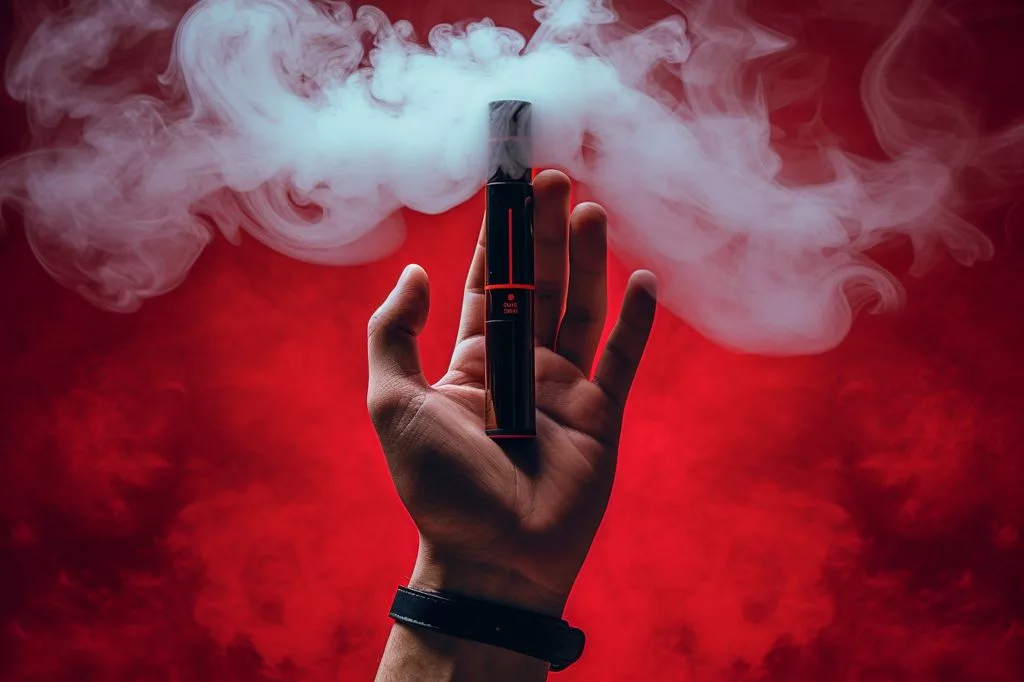As students in South Africa prepare for year-end exams, many are turning to vaping as a coping mechanism for academic stress. However, accessibility to vaping products for young individuals has become a growing concern, with alarming statistics revealing that a significant portion of high school students use these products. As regulation efforts are underway, concerns arise about unintended consequences, but urgent action and increased awareness are necessary to protect the well-being of young people.
Alarming Statistics
A study conducted by the University of Cape Town Lung Institute revealed alarming statistics. The research included about 6,000 pupils from 12 schools across three provinces and discovered that 26.5% of Grade 12 students participated in vaping. Furthermore, 17.4% of Grade 11, 13% of Grade 10, and 10.8% of Grade 9 pupils were also found to use vaping products.
Accessibility Issues
Asanda Gcoyi, CEO of the Vapour Products Association of South Africa (VPASA), voiced concern about the issue of accessibility. Many young people have confirmed purchasing vaping products themselves, sometimes even with assistance from their parents. The growing problem lies in their effortless access to these products.
Misleading Claims
Dr. Catherine Egbe of the South African Medical Research Council disputes popular claims that vaping is safer than smoking cigarettes. She asserts that this belief is merely industry propaganda and that no studies support the idea of vaping being 95% safer than smoking. The lack of regulation surrounding vaping products in South Africa further exacerbates the issue, as there is no control over the import, manufacturing, and marketing of these items.
Regulation Efforts
Acknowledging the need for regulation, Finance Minister Enoch Godongwana announced during his budget speech earlier this year intentions to impose an excise duty on vaping tobacco products. The South African Revenue Service (SARS) confirmed in April that nicotine and nicotine-substitute solutions used in vaping products would be subjected to a flat excise duty rate of R2.90/ml, effective from 1 June 2023.
Simultaneously, the Tobacco Products and Electronic Delivery Systems Control Bill currently in parliament aims to enforce more stringent regulations. The bill seeks to prohibit the sale and free distribution of tobacco products and electronic delivery systems to minors, among other provisions.
Concerns with Regulations
While VPASA welcomes some aspects of the bill, it also expresses concern about the “unintended consequences” that may arise. The organization fears that the legislation could lead to the proliferation of informal distribution channels, which would counteract efforts to restrict youth access to vaping products.
The alarming rise of vaping among students in South Africa necessitates urgent attention and action. Stricter regulations and increased awareness of the potential dangers of vaping are essential to address this growing concern and protect the well-being of young people.
1. What percentage of Grade 12 students in South Africa were found to be using vaping products, according to the University of Cape Town Lung Institute study?
The University of Cape Town Lung Institute study revealed that 26.5% of Grade 12 students in South Africa were using vaping products.
2. What is one of the major concerns regarding accessibility issues of vaping products?
The concern with accessibility issues of vaping products is that young individuals have easy access to them, with some even purchasing the products themselves or with assistance from their parents.
3. What is one of the major concerns of Dr. Catherine Egbe regarding the lack of regulation surrounding vaping products in South Africa?
Dr. Catherine Egbe is concerned that the lack of regulation surrounding vaping products in South Africa has led to misleading claims that vaping is safer than smoking cigarettes, which may be industry propaganda. She further asserts that there is no evidence to support the idea of vaping being 95% safer than smoking.
4. What are the current regulation efforts being made in South Africa regarding vaping products?
The South African government is taking steps to regulate vaping products by imposing an excise duty on these products and passing the Tobacco Products and Electronic Delivery Systems Control Bill, which aims to prohibit the sale and free distribution of tobacco products and electronic delivery systems to minors, among other provisions.
5. What concerns does the Vapour Products Association of South Africa (VPASA) have regarding the Tobacco Products and Electronic Delivery Systems Control Bill?
While the VPASA welcomes some aspects of the Tobacco Products and Electronic Delivery Systems Control Bill, the organization expresses concern about the potential unintended consequences that may arise, such as the proliferation of informal distribution channels, which may counteract efforts to restrict youth access to vaping products.








